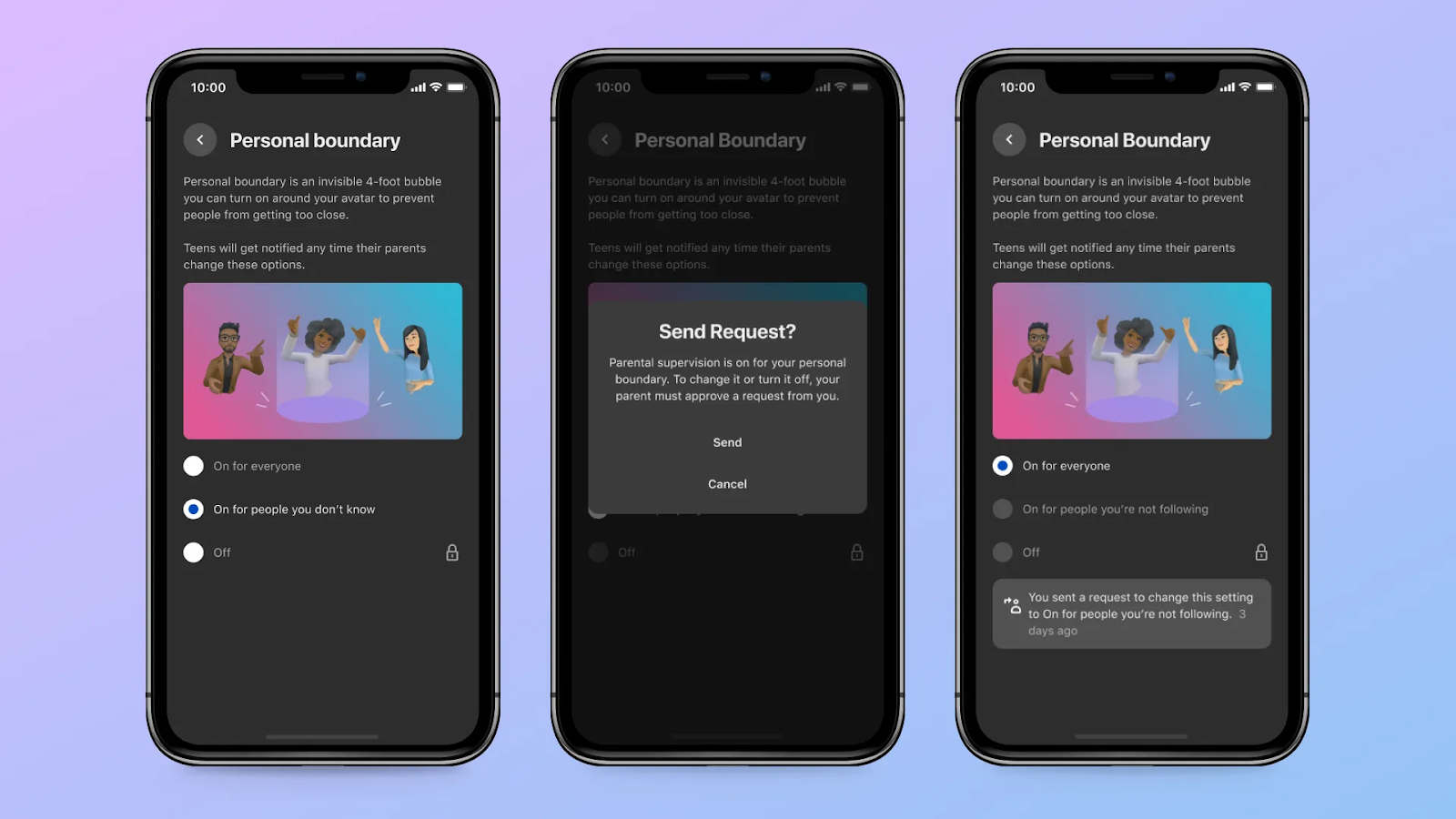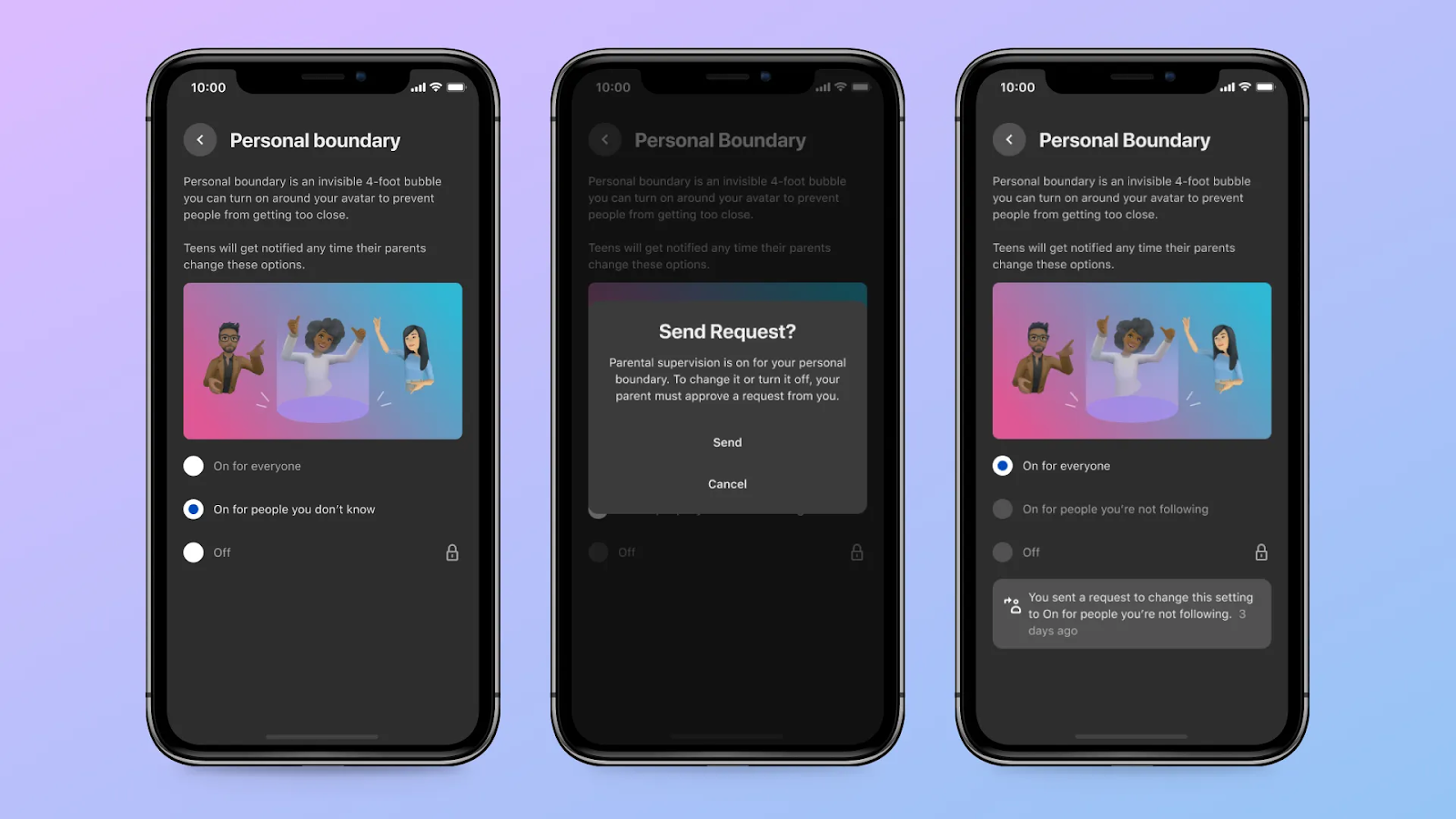
Meta is opening up its online social worlds to teenagers in the United States and Canada.
Meta’s official policies have limited Horizon Worlds to those age 18 and older since it launched, as Meta switched from backing the service with a Facebook account to rebranding its whole operation and launching Meta accounts.
Quest headsets are designed for use by those aged 13 and older, with “customized controls with age-appropriate settings” for those looking to connect in Meta’s virtual reality.
“Teens’ profiles are automatically set to private, so they’re able to approve or decline anyone who requests to follow them,” Meta’s blog post explains in announcing the changes. “By default, we won’t show a teen’s active status and Meta Horizon Worlds location to other people in Worlds. Teens will be able to choose whether their connections can see if they’re active online and which public world or event they’re in.”
Horizon Worlds remains a platform in transition, with Meta introducing a mature tag for its social worlds and then focusing on a “quality lockdown” even as plans were shared for a phone or Web version of the platform. With the latest expansion of the target market for Horizon Worlds, Meta is promoting a feature it announced last year that we first noticed in NormalVR’s Half + Half games – garbled voices for strangers.
Voice mode “transforms the voices of people a teen doesn’t know into quiet, friendly sounds, giving teens more control over who can communicate with them. It also garbles the teen’s voice, so people they don’t know can’t hear them. We turn garbled voices on automatically for all teens by default within voice mode.”
Meta claims to also be taking steps to “prevent interactions between adults and unconnected teens” with the example that “we don’t display any adults a teen doesn’t know in their ‘people you might know’ list.”
Guardians can set up parental supervision “by inviting their teen to connect” through a Family Center or the Meta Quest app.




